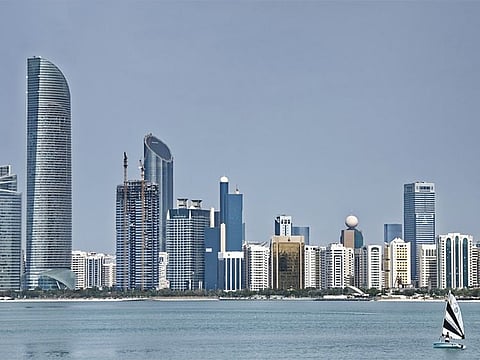Updated rules for entering Abu Dhabi - all you need to know
New rules in shopping malls, public transport and how to apply for a movement permit

Dubai: On July 15, the Abu Dhabi Emergency, Crisis and Disasters Committee announced a number of updates in its efforts protect public health and prevent the spread of COVID-19. Here is all you need to know about the National Disinfection Programme, updated entry requirements and updated capacity limits for public places.
Movement restrictions from midnight to 5am
Movement restrictions will be in place from 12am to 5am from Monday, July 19 due to a National Disinfection Programme in the emirate of Abu Dhabi, according to the announcement issued by the Abu Dhabi Media Office.
The disinfection drive will take place daily between midnight and 5am. These are the rules that will be in place during the movement restrictions:
1. Movement of traffic and public will be restricted.
2. No public transportation services.
3. Stay home unless absolutely necessary or to get essential supplies, such as food and medicine.
4. If you need to step out, apply for a movement permit.
How to apply for a movement permit
If you have an emergency and wish to apply for a movement permit, these are the steps to follow:
1. Visit the Abu Dhabi Police website – www.adpolice.gov.ae
2. Click on ‘Move permit request’ on the home page.
3. Enter your mobile number and verify yourself as a user by entering the text in an image, as a verification process. Click on ‘Send OTP’.
4. You will receive a one-time password (OTP) on your mobile number, which you need to enter on the website.
5. Once you have verified the OTP, you will be asked to provide the following details:
• Full name
• Your current location (emirate)
• Destination type (Hospital, supermarket, pharmacy, etc.)
• Destination name
• Number of individuals who will be travelling
• Start and end date and time of the journey
• Vehicle number plate details
Once you have provided these details, verify yourself as a user once again by typing out the text in an image and click ‘Submit’.
If the movement permit request is approved, you will receive it on your registered mobile number.
New entry requirements for Abu Dhabi
The Abu Dhabi Emergency, Crisis and Disasters Committee also announced new entry requirements for Abu Dhabi from Monday, July 19. The entry and re-test requirements vary based on whether you are using a PCR (Polymerase Chain Reaction) or DPI (Diffractive Phase Interferometry) test to enter the emirate.
PCR test
If you are taking a PCR test, you will be allowed entry within 48 hours of receiving a negative test result.
Once you have entered Abu Dhabi, you will be required to take a PCR test on Day 4 of entry, and then on Day 8.
DPI test
If you are taking a DPI test, you will be allowed entry within 24 hours of receiving a negative test result.
Once you have entered Abu Dhabi, you will be required to take a PCR test on Day 3 of entry, and then on Day 7.
A DPI test cannot be used to enter Abu Dhabi consecutive times. So, if you have used a DPI test to enter the emirate once, you will have to take a PCR test for the next time you enter the emirate.
The procedures apply to all vaccinated and non-vaccinated citizens and residents.
Updated operating capacity of public places
The operating capacity of various public places was also updated in an announcement on July 19.
The following public places will operate at a maximum of 50 per cent capacity:
• Public beaches
• Public parks
• Private beaches
• Swimming pools
• Restaurants and cafes
• Gyms
• Gyms and spas in hotels
• Buses and public ferries
Shopping malls will operate at 40 per cent capacity
Cinemas will operate at 30 per cent capacity.
A maximum of three passengers are permitted in a five-passenger taxi and four passengers in a seven-passenger taxi.
The decision is aligned with Abu Dhabi’s strategy to combat the pandemic, reinforcing the proactive and precautionary measures implemented by the emirate to limit the spread of Covid-19.
The committee called on community members to adhere to preventive measures, maintain physical distancing, and wear masks in public places to preserve public health gains.



